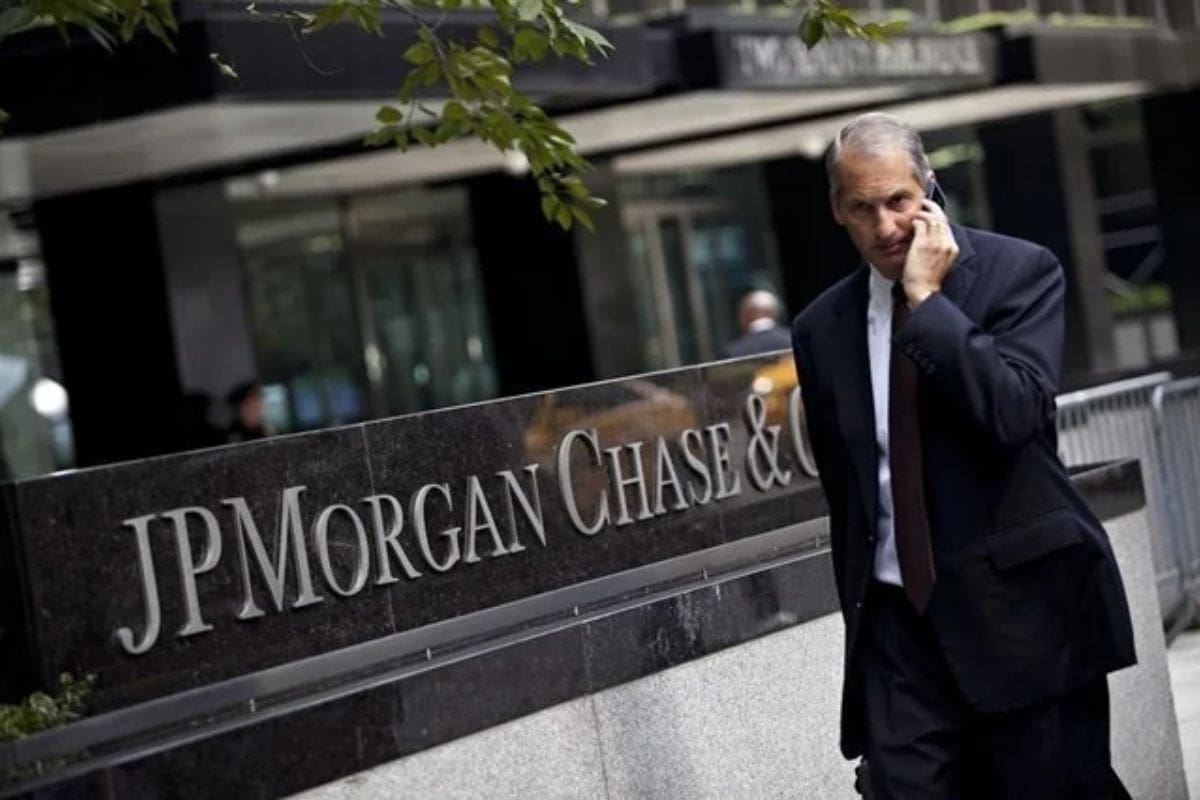JPMorgan’s CEO Jamie Dimon’s recent decision to sell $150 million in JPMorgan Chase shares has sparked intrigue and speculation within the financial sector. As one of the most prominent figures in the banking industry, Dimon’s actions are often scrutinized for potential insights into the market’s future trajectory.
The timing of this significant sell-off amidst the backdrop of rising compensation and regulatory challenges raises questions about Dimon’s confidence in the bank’s stability and the broader economic landscape. What could this move signify for JPMorgan Chase and the industry at large?
In a surprising move, JPMorgan Chase CEO Jamie Dimon has recently offloaded approximately $150 million worth of shares in the bank, breaking a longstanding streak of holding onto his stock since assuming leadership in 2005. This unexpected sale has sent shockwaves through the financial world, with many questioning the motives behind Dimon’s decision to divest a significant portion of his holdings.
The timing of this move raises eyebrows, coming at a time when JPMorgan Chase is enjoying record profits and a strong position in the market. Dimon, known for his strategic acumen, has left investors speculating about the implications of this sale on the bank’s future trajectory. While Dimon has clarified that this divestment is part of a planned strategy and not linked to any impending leadership changes, the market remains abuzz with conjecture.
The sale of over 800,000 shares by Dimon and his family marks a departure from his traditional approach, leaving observers intrigued about what this move signifies for the future of JPMorgan Chase.

Also Read: JPMorgan’s 350M Dollar Hit: Trade Reporting Gaps Spark Regulatory Penalty
Dimon’s Compensation Rises Amid Record Profits
Despite the recent sale of $150 million worth of shares, JPMorgan Chase CEO Jamie Dimon‘s compensation for 2023 has surged by approximately 4.3% to $36 million, a rise attributed to the bank’s record profits. Dimon’s financial gains reflect the staggering success of JPMorgan, which boasted its largest annual profit to date, bolstered by the strategic acquisition of First Republic Bank.
While some may question the optics of such a substantial stock sale by the CEO, Dimon’s unwavering confidence in the company’s trajectory is evident. With Dimon and his family still holding a significant stake of around 7.7 million shares post-transaction, it’s clear that this move was a calculated one.
Dimon’s compensation hike amidst these record profits not only underscores his leadership but also raises eyebrows in the financial world, sparking debates about executive pay and the correlation between soaring profits and remuneration packages.
JPMorgan Chase Faces Regulatory Fines
JPMorgan Chase’s looming regulatory fines for its mishandling of trading data signal a tumultuous period ahead for the banking giant, overshadowing its recent stock market successes. The civil penalties of approximately $350 million paint a grim picture for JPMorgan Chase, tarnishing its reputation and casting doubts on its compliance practices. This latest debacle exposes deep-rooted issues within the institution, raising concerns about its risk management and regulatory oversight. Shareholders are left grappling with uncertainty as the bank’s stocks soar to record highs while regulatory fines loom large on the horizon.
The hefty fines underscore a pattern of negligence and incompetence within JPMorgan Chase’s regulatory compliance framework.
Investors are left questioning the integrity of the banking giant as it grapples with yet another compliance scandal.
The regulatory challenges facing JPMorgan Chase threaten to erode investor confidence and destabilize the financial markets.

News In Brief
JPMorgan Chase’s CEO Jamie Dimon’s recent sale of $150 million in shares has triggered speculation about the bank’s future. Despite record profits and a strong market position, Dimon’s move raises questions about confidence in JPMorgan’s stability. Dimon, citing a planned strategy, emphasizes it’s unrelated to leadership changes. His compensation rose by 4.3% to $36 million amid record profits, spotlighting executive pay debates. However, the bank faces regulatory fines of $350 million for trading data mishandling, raising concerns about compliance practices. These challenges threaten investor confidence and cast a shadow on JPMorgan Chase’s recent successes.
Our Reader’s Queries
Q1Did Jamie Dimon sell JPMorgan stock?
A JPMorgan Chase & Co. CEO Jamie Dimon and his family have offloaded $150 million worth of the bank’s stock, in line with Dimon’s previous year’s declaration that he would initiate selling shares, marking the first time since assuming leadership 18 years ago.
A Prominent shareholders encompass Vanguard Group Inc, BlackRock Inc., State Street Corp, VTSMX – Vanguard Total Stock Market Index Fund Investor Shares, VFINX – Vanguard 500 Index Fund Investor Shares, Morgan Stanley, Geode Capital Management, Llc, Bank Of America Corp /de/, Fmr Llc, and Wellington Management Group Llp.
A Last year, Dimon revealed intentions to divest up to a million shares for the purpose of “financial diversification and tax planning.”

